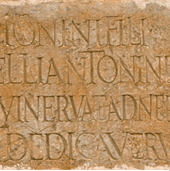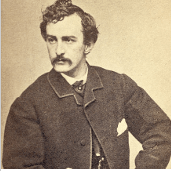


1
Just the text
2
The text with the questions
3
The text with the questions and the answers
We constructed it this way in order to reduce the
amount of pages you need to print.
We encourage you to print the
version with the answers just once, for your own reference.
We more strongly encourage you to use these texts online. Other than ecological reasons, practicing reading comprehension online is also much easier to grade, simplifies tracking of progress, adaptive to the level of the specific student, and increases motivation to practice with the students.
Register to ReadTheory and unlock the answers to all worksheets on the site.



Ninth-grade readers are tasked with learning the difference between formal and informal tone. More specifically, students should be able to analyze how the author’s word choices impact the tone of the reading. Additionally, readers acquire skills related to differentiating between primary and secondary sources by examining things like the author’s point of view, the date the text was written, and the source of the information. Utilize the exercises below to advance these skills on top of twice-a-week practice with reading comprehension worksheets.
This activity asks students to write a formal letter to a person they admire, asking them to come to speak at their school. This exercise focuses on the use of formal language (i.e., complex sentences, avoiding the use of contractions) to help students identify how formal language differs from informal language. For example, students would write, “I would like to request that you come speak to students at my school about your experiences in the armed forces,” rather than “Hey, I’d love for you to come talk at my school.”
Thinking Like a Historian
Present students with a range of documents that discuss the same historical event. Then ask students to identify which documents were written at the time the event occurred and which were written after the fact. In doing so, students will learn one key element of primary sources – pieces that were written at the time the event occurred are primary while those written after the fact are secondary.
Examining Point of View
To understand how authors can have differing viewpoints on the same subject, ask students to analyze primary and secondary resources on the same topic from multiple authors. Specifically, encourage students to write down the differences they find in each account of the event. Then, use those differences as a springboard for a discussion of how people’s perceptions of the same event can be different both at the time the event occurs and as authors recount the event later on.
You can also find hundreds of 9th-grade reading comprehension worksheets available for purchase at readtheoryworkbooks.com

Below are 10 reading comprehension worksheets and tests that are accurately measured to fit the 9th grade level.

Topic
The Best Seat
Lexile level
980
Num of questions
7
Types of questions
Identifying the main topic and key ideas, Identifying the author’s point of view, Cause and effect comprehension

Topic
The Importance of Minerals
Lexile level
1020
Num of questions
5
Types of questions
Central message, Identifying the main topic and key ideas, Identifying the author’s point of view, Cause and effect comprehension

Topic
Taping and Bracing
Lexile level
1180
Num of questions
9
Types of questions
Central message, lesson or moral, Identifying the main topic and key ideas, Identifying the author’s point of view, Cause and effect comprehension

Topic
Latin as a second language
Lexile level
1070
Num of questions
8
Types of questions
Central message, lesson or moral, Identifying the author’s point of view, Identifying the main topic and key ideas

Topic
Gold
Lexile level
1180
Num of questions
6
Types of questions
Central message, lesson or moral, Identifying the author’s point of view, Identifying the main topic and key ideas

Topic
Fixed On Lincoln
Lexile level
990
Num of questions
7
Types of questions
Central message, Identifying the main topic and key ideas, Cause and effect comprehension.

Topic
Dividing Oceans
Lexile level
1060
Num of questions
7
Types of questions
Central message, lesson or moral, Identifying the main topic and key ideas.

Topic
Chores are Good
Lexile level
1210
Num of questions
6
Types of questions
Cause and effect comprehension, Identifying the main topic and key ideas,Central message.

Topic
Being bullied
Lexile level
1110
Num of questions
6
Types of questions
Cause and effect comprehension, Identifying intent and conclusions, Summarizing.

Topic
Amazon Snakes!
Lexile level
1090
Num of questions
8
Types of questions
Identifying the main topic and key ideas,Identifying the author’s point of view, lesson or moral.

Check out our NEW collection — created by AI, thoughtfully inspired and refined by teachers.